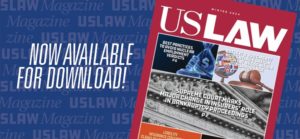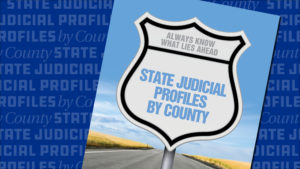Applications are now being accepted for the 2025 USLAW NETWORK Foundation Law School Scholarship Program. The scholarship… Continue Reading
Jones Skelton & Hochuli trial success
POSTED JANUARY 20, 2022
Supreme Court Punts on the Issue of Whether Agent’s Dismissal with Prejudice on Notice of Claim Grounds Precludes Vicarious Claim
Banner v. Gordon| Arizona Supreme Court | JSH Attorney Eileen GilBride
 The Supreme Court avoided answering the questions posed in this case: does an involuntary dismissal with prejudice of an agent or employee constitute an adjudication on the merits, regardless of the grounds for the dismissal; and does an involuntary dismissal with prejudice of an agent preclude a purely derivative vicarious liability claim against the principal?
The Supreme Court avoided answering the questions posed in this case: does an involuntary dismissal with prejudice of an agent or employee constitute an adjudication on the merits, regardless of the grounds for the dismissal; and does an involuntary dismissal with prejudice of an agent preclude a purely derivative vicarious liability claim against the principal?
In Banner v. Gordon, plaintiffs sued physicians and Banner for the death of their son. The plaintiff failed to serve the physicians, public employees of the State of Arizona, with the requisite notices of claim. The trial court therefore dismissed them “with prejudice.” DeGraff v. Smith, 62 Ariz. 261 (1945), holds that an involuntary dismissal with prejudice constitutes an adjudication on the merits. Likewise, Rule 41(b), Ariz.R.Civ.P., states that an involuntary dismissal operates as an adjudication on the merits. Because the physician/agents were dismissed with prejudice, Banner moved to dismiss the vicarious liability claim against it.
Law v. Verde Valley Med. Ctr., 217 Ariz. 92 (Ct. App. 2007), holds that a dismissal with prejudice of an agent or employee requires dismissal of the vicarious liability claim against the principal.
The trial court denied Banner’s motion and Banner filed a special action with the court of appeals. In a split decision, the court of appeals majority held that the vicarious liability claim against Banner survived the agents’/employees’ dismissal because Banner is a “private employer” that should not “take advantage of” the notice of claim statute. Dissenting Judge Brearcliffe would have dismissed the vicarious liability claim based on the dictates of Rule 41(b), DeGraff, and Law. Banner sought Supreme Court review.
The Supreme Court granted review stating that the issues were of statewide importance. When it finally issued its decision, however, the Court avoided the substantive issues entirely. It held that the judgment in favor of the agents/employees was not “final” because it lacked Rule 54(b) language – the language that makes a judgment in the middle of a case appealable. And because the judgment was not final (even though it was entered “with prejudice”), it did not preclude the vicarious claim against Banner.
The court did, however, vacate the court of appeals’ opinion which had held that vicarious liability claim against Banner survived the agents’/employees’ dismissal because Banner is a “private employer” that should not “take advantage of” the notice of claim statute. As such, the resolution of the issue of whether an agent/employee’s dismissal with prejudice on notice of claim grounds precludes a vicarious claim against the principal will have to await another day.










